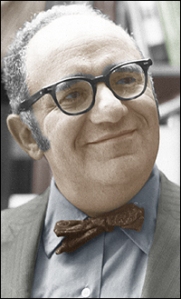In 1980, Murray Rothbard wrote an article, Six Myths about Libertarianism claiming that “libertarianism is the fastest growing political creed in America.” However, he was concerned that its growth would be hampered by misconceptions and that’s why he wrote the article to clarify before the public the real character of this movement, and at the same time, educate the conservatives.
Summarizing the false charges against libertarianism, it is associated with individualism, licentiousness, rationalism, atheism, materialism, utopianism, and that it upholds every man’s perfect knowledge concerning his affairs. Let us have an overview of each of these myths:
- False association of libertarianism with a wrong notion of “individualism.”
With this association, libertarianism is said to be against any idea of collaboration and voluntary cooperation. What libertarians oppose according to Rothbard is not collaboration per se, but a counterfeit form of collaboration initiated by the state. Libertarians advocate genuine and voluntary collaboration for this political philosophy upholds that every individual influences each other.
- Identifying libertarianism with licentiousness or libertinism.
Here, Rothbard made a distinction between libertarianism and libertinism. If libertarianism is similar with libertinism as the accusers say, libertarianism then would finally leads to chaos and violence for such is the logical conclusion of a political idea without restraint. For Rothbard, the only legitimate use of violence is for self-defense. Any use of violence beyond self-defense is unlawful and criminal. Furthermore, Rothbard acknowledges the existence of diverse types of libertarianism: hedonist, bourgeois, libertines, and moral or spiritual. This could not be avoided due to the inherent character of liberty.
Personally, though I appreciate the distinction between libertarianism and libertinism, I do not agree with Rothbard’s ultimate idea of liberty. Yes, he accepts the possibility of a moral and spiritual grounding for liberty, but I suspect that basically his idea of liberty is derived from the Scholastics’ concept of natural law. Leonard E. Reed’s concept of liberty is different from Rothbard’s. In Elements of Libertarian Leadership (1962), Reed believes that faith in the Creator is the basic foundation of freedom. The other option is freedom given by the state. The third option does not exist.
- Libertarianism does not believe in moral principles, but focuses exclusively on the rationality of man.
This charge is connected to the second. It is true that there are libertarians who do not acknowledge liberty as a moral principle, but to say that all libertarians do not believe in moral principle is actually a misinterpretation. In fact, libertarians consistently apply moral principles such as murder and theft both to individuals and the government. They do not recognize the existence of a different moral standard between the individual and the government. One moral principle applies to both. The only exception libertarians could not tolerate as Rothbard understood is the use of coercion to force people to be moral. The choice to be moral or immoral is inherent in libertarianism.
- Libertarianism is atheistic and materialistic; consequently, it ignores spiritual reality.
For Rothbard, religion could not be used as a definitive categorization of libertarianism for you can find both atheists and theists embracing this political creed. Furthermore, for Rothbard, though the existence of Creator is a valid ontological question, it is irrelevant when it comes to social or political philosophy. Libertarianism could actually be accessed either through pure natural law as the Scholastics clearly taught us or through religious influence. The charge of materialism could also not stand for in the mind of Rothbard spiritual and material are inseparable.
- Libertarians are utopians, believe in the inherent goodness of man, and therefore making State unnecessary
Depending on Rothbard’s knowledge, he does not know any libertarian who holds such a view. Libertarians are not utopians for they actually believe that man is a combination of good and evil. And that is the reason why they are against the expanding power of the state for those in power with their criminal nature could use the state to legitimize their abuses. Obviously, that is not utopianism. Moreover, the ideal society for libertarians is not realized through total disappearance of crimes, but lesser crimes. And unlike socialism, libertarians do not have a vision of remolding humanity to achieve its ideal society.
- Libertarians believe that men are perfectly wise and know what’s best for them
Both libertarians and the socialists do not believe this, but the response is different. For socialist, this is a ground for State’s intervention. For libertarians, the emphasis is on man’s freedom to act concerning his basic rights and property. And instead of claiming for perfect knowledge, libertarians actually employ the experts’ advice for them to succeed in their endeavors.

No comments:
Post a Comment